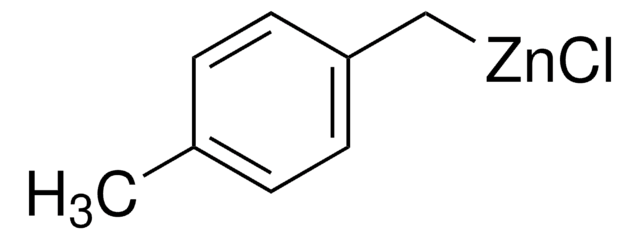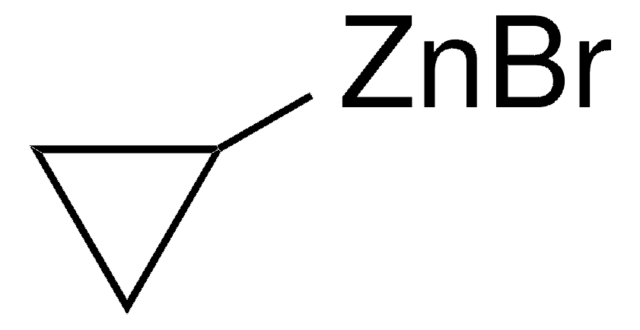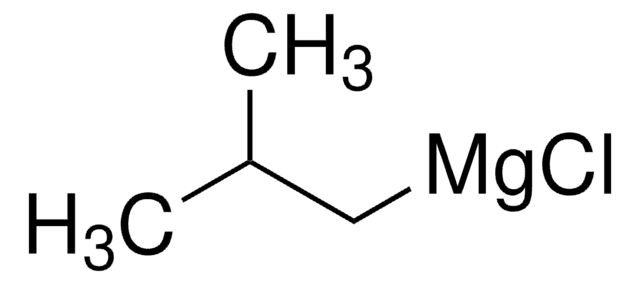498963
Isobutylzinc bromide solution
0.5 M in THF
Synonym(s):
(2-Methylpropyl)zinc bromide, Bromo(2-methylpropyl)zinc
About This Item
Recommended Products
Quality Level
concentration
0.5 M in THF
density
0.943 g/mL at 25 °C
storage temp.
2-8°C
SMILES string
CC(C)C[Zn]Br
InChI
1S/C4H9.BrH.Zn/c1-4(2)3;;/h4H,1H2,2-3H3;1H;/q;;+1/p-1
InChI key
WYBHVVXVUCUWSE-UHFFFAOYSA-M
Application
Legal Information
Rieke is a registered trademark of Rieke Metals, Inc.
Signal Word
Danger
Hazard Statements
Precautionary Statements
Hazard Classifications
Acute Tox. 4 Oral - Carc. 2 - Eye Irrit. 2 - Flam. Liq. 2 - Skin Irrit. 2 - STOT SE 3 - Water-react 2
Target Organs
Respiratory system
Supplementary Hazards
Storage Class Code
4.3 - Hazardous materials which set free flammable gases upon contact with water
WGK
WGK 3
Flash Point(F)
1.4 °F - closed cup
Flash Point(C)
-17.0 °C - closed cup
Choose from one of the most recent versions:
Already Own This Product?
Find documentation for the products that you have recently purchased in the Document Library.
Customers Also Viewed
Our team of scientists has experience in all areas of research including Life Science, Material Science, Chemical Synthesis, Chromatography, Analytical and many others.
Contact Technical Service














